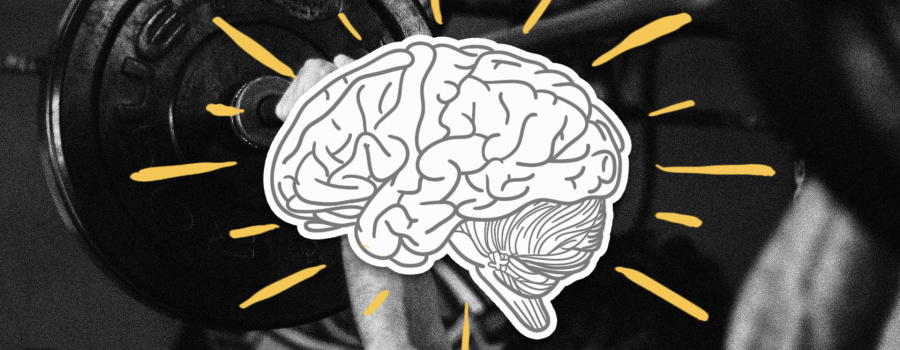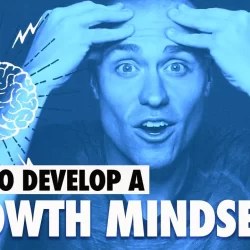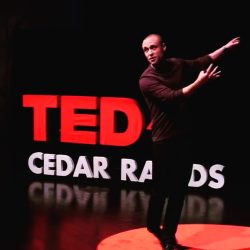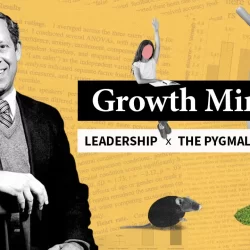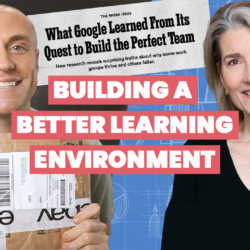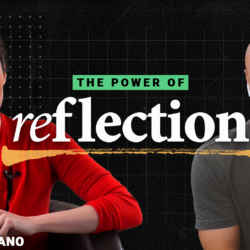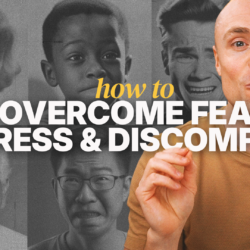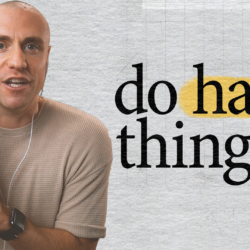With our SFCOHTGGAS post we established that our mindsets have a big impact on our capacity to grow and that developing a growth mindset – the belief we can grow – can help us become better learners.
That’s all great, but unfortunately it’s where most people stop when they teach growth mindset: “Our mindsets matter. Developing a growth mindset is important. You should have one. K bye”
I think we can do better than that. Rather than simply telling people to believe that they can grow, it’s important to go a bit deeper and talk about the research of neuroplasticity – that shows us change is possible.
Neuro = brain
Plasticity = changeable
Our brain is a series of circuits and pathways, and every time we do, think, or experience something, we fire a pathway. If a certain pathway fires enough times, in the right way, our brain will reinforce that circuit so we can fire it more quickly and accurately. Neuroscientists say, “what fires together, wires together.”
A good way to think about all of this starts with a phrase we’ve all heard before: your brain is like a muscle. It’s cliche, but it actually touches on four key points of learning, backed by good science:
1. To make a change we need action
2. To make a change we need to struggle
3. Making a change takes time
4. Everyone can change
Let’s dig in.
Action
I can’t go to the weight room and watch someone exercise and then I get stronger.
I mean, that would be AWESOME – but that’s not how it works.
I can observe and learn from their form and technique, which can be super helpful. But to see change in myself, I have to do the work.
We need to apply the same logic to learning.
We can watch, listen, and observe. We can learn ‘how’ to do something, we can learn from people’s tactics and techniques – all useful and important. But the best way to build the skill is to fire the pathway, and the best way to fire the pathway is by doing the actual thing.
This is simple. We know it. But sometimes we forget it.
Writing a lot helps us get better at writing. And if we want to get better at public speaking, we need to get more reps and at-bats doing that. Every skill has its own specific pathway and to get better at it, we need to fire it.
We can gain knowledge through observation. To build the skill we need to take and sustain action.
Struggle
You and I go to the gym together for a workout. We do the exact same exercises but you use weights and I don’t. Who gets more from the workout?
Yup, you would. Of course. And we’ve asked 1st graders the same question and they say the same thing. Because we’re taught from an early age that in order to get stronger our muscles need to struggle.
The same rules apply to changing our brains.
If we both want to get better at public speaking and I spend all of my time rehearsing my talks in front of the mirror, while you’re practicing in front of people:
My approach = minimal struggle, minimal growth
Your approach = more struggle, more growth
Whether we’re trying to grow a muscle or a skill we need to stress the system in order to create change.
Sometimes people like me over simplify the learning process and say: “If you want to get good at something, you just have to do it a lot.”
That’s partially true, but piles of research show that it’s not just about the quantity of our practice – the quality matters too.
Working out is essentially struggling on purpose and we can learn to do the same when we’re building skills.
(this article goes in-depth on how to incorporate struggle into practice)
Patience
When it comes to changing our body (getting stronger, bigger, in better shape) we know that the change doesn’t happen overnight – I mean we wish it did, but we know that’s not how it works.
So when we want to make that physical change we stay patient – we know it requires sustained action over time.
We need to deploy the same approach to building skills. So many times we try something once or twice, we don’t see results, and go, “Welp, I guess can’t learn that.”
That’s the equivalent of doing one set of squats and expecting to see results the next day. “Wait what? I’m not bigger? I guess I can’t grow.”
We would never do that in the weight room because we know it takes action, struggle, and time to build muscle. Well, the same rules apply to building our skills.
Patience is important here. Nobody goes from bench pressing just the bar to benching 225 pounds in a week. We go from 45 to 50 to 55 to 55 to 55 to 60 – slow incremental changes and some plateaus. Learning a new skill will be the same.
Side note: yes it takes time to build a skill, but it doesn’t take 10,000 hours. Of course it takes years to master a skill, but we can learn enough to be dangerous within a few months or even weeks with the right type of practice.
We can all grow
The truth is, most of us aren’t going to become bodybuilders. But we can all make any muscle stronger if we work it out.
Learning is the same.
We’re not all going to become experts at every skill – but we can all get better at pretty much any skill. With enough time and practice we can learn just about anything.
We’ve shared this before but it’s worth putting it out there again. Dr. Michael Merzenich (known as the father of neuroplasticity) says it best:
Understanding this research is the bedrock for building a growth mindset.
Growth mindset = I believe I can grow
Neuroplasticity = you can grow
For more:
Growth Mindset Hub
SFCOHTGGAS
What We Got Wrong with Growth Mindset

